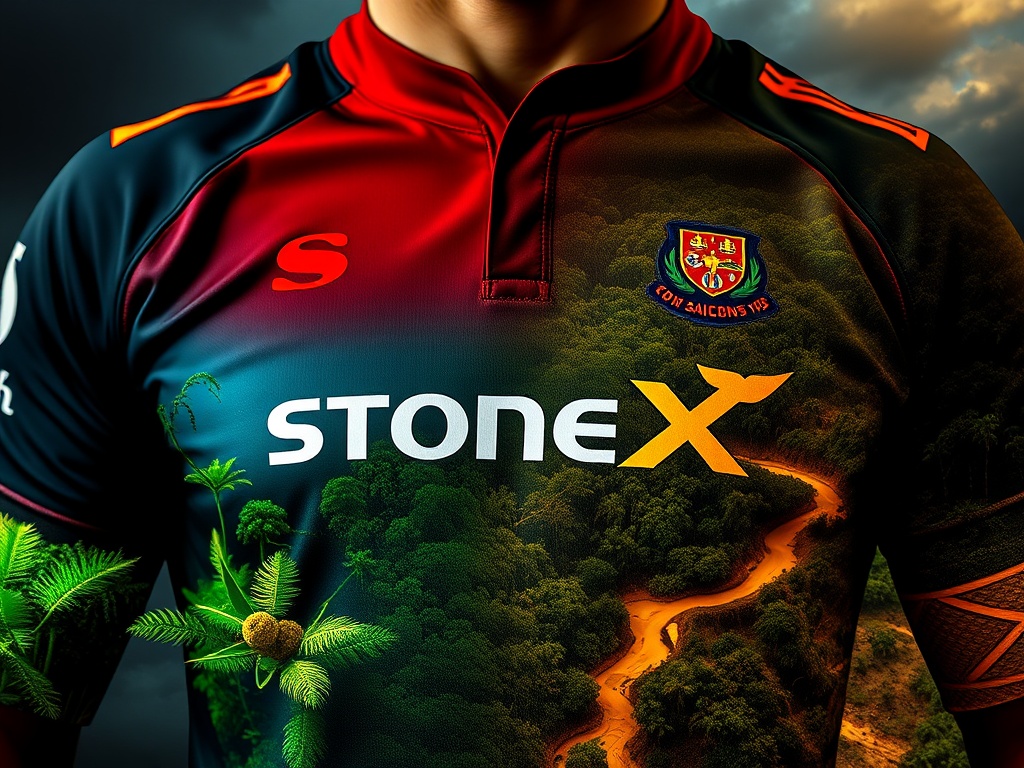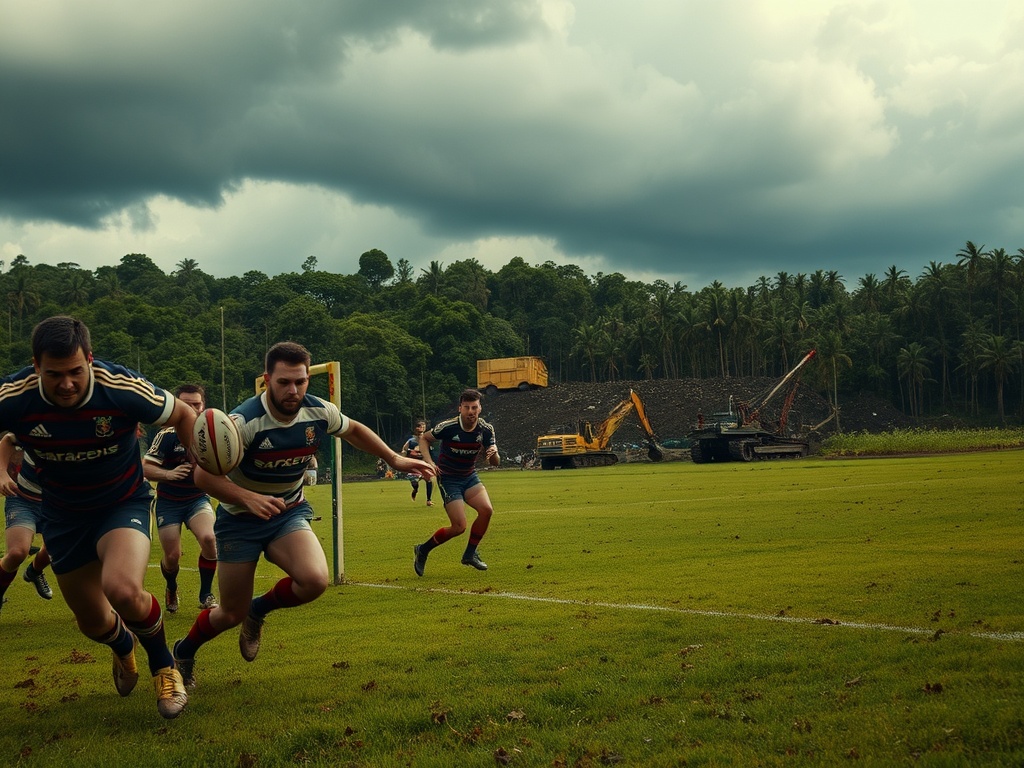Allegations Surrounding Saracens’ Sponsorship Deal with StoneX

Top rugby club Saracens is facing serious allegations of complicity in environmental destruction, sparked by claims that its primary financial backer, StoneX, engaged in purchasing gold from a company linked to illegal mining operations in the Amazon rainforest. These unlawful mining practices are reportedly causing extensive damage to this vital ecosystem, which serves as a crucial buffer against climate change.
Illegal mining not only devastates the rainforest but also poses severe health risks to local communities and wildlife due to the mercury contamination involved in gold extraction processes. The repercussions of such activities are far-reaching, impacting biodiversity and threatening the livelihoods of indigenous populations.
In 2020, Saracens entered into a lucrative sponsorship agreement with StoneX, valued at over £2 million annually. This partnership prominently features StoneX’s branding on both the club’s stadium in North London and its player jerseys.
According to an investigation conducted by the Bureau of Investigative Journalism in collaboration with Brazilian news outlet Repórter Brasil, there is documentary evidence indicating that StoneX acquired gold from a Brazilian entity that sourced a portion of its gold from a network within the Amazon, including miners who faced fines from Brazil’s environmental agency in 2022.
StoneX, which also owns the UK-based spread betting company City Index, has dismissed the investigation’s claims as “inaccurate.” The firm asserts that it adheres to stringent policies and protocols to verify the legitimacy of the origin of all precious metals it acquires, stating, “StoneX is a responsible member of the global precious metals industry and conducts extensive due diligence.”
In light of these allegations, an Amazon advocacy group is urging Saracens to terminate its sponsorship agreement with StoneX. Christian Poirier, program director at Amazon Watch, remarked, “Any organization concerned with environmental preservation and human rights cannot maintain direct or indirect links to Brazil’s disastrous illegal gold mining industry. Saracens has a duty to sever ties with its sponsor or risk sharing in the complicity of one of the primary drivers of destruction in Amazonian indigenous lands and communities.”
Daniela Montalto, a senior forests campaigner for Greenpeace UK, commented that Saracens should recognize that their brand could become associated with “the shame of forest destruction, crime, pollution, poisoning, and sickness that is intrinsic to illegal Amazonian gold mining.”
Impacts of Illegal Gold Mining in the Amazon
The Brazilian Amazon is renowned as one of the richest and most diverse ecosystems on the planet, home to millions of species, many still unknown to science. According to Greenpeace, economic activities like gold mining have systematically ravaged the region, which cannot coexist with the forest. Campaign groups argue that illegal mining has proliferated in the Amazon over the years, polluting indigenous lands and protected areas, thereby endangering the health and lives of over 30 million residents, particularly indigenous peoples.
These mining activities pose serious threats through mercury contamination, which is used to extract gold from rock, and the resultant deforestation. Additionally, illegal mining threatens local rivers, which serve as critical food sources for communities and are essential for the reproduction of aquatic life, vital for the conservation of the Amazon.
In a response to the allegations, Coopemiga, the mining cooperative in question, informed Repórter Brasil that it has implemented significant management changes and is gradually adopting safer, more environmentally responsible gold extraction techniques.
Alexandria Reid, the forests campaign lead at Global Witness, emphasized that such allegations highlight the urgent necessity for financial institutions and traders to conduct thorough checks, going beyond immediate suppliers to ensure they are not unwittingly contributing to the destruction of global forests.
StoneX maintained that it understood the appropriate members of the cooperative had been held accountable following the 2022 investigation. The company further clarified that Coluna, one of its suppliers, is a licensed financial institution in Brazil that continues its export activities. StoneX stated that the gold in question was already part of the Brazilian banking system and that it obtained the necessary certificates of origin and background documentation for the metal. StoneX also clarified that it does not purchase gold from cooperatives in Brazil.
Coluna has opted not to comment; however, sources within the metal industry note that the investigation into the blocked cargo remains ongoing, with no definitive conclusions of wrongdoing regarding the gold in question yet established. When Saracens first partnered with StoneX in 2020, the club’s then-CEO, Lucy Wray, expressed confidence in the alignment of values and ambitions between Saracens and StoneX.
Despite multiple requests for comment, Saracens has not responded to inquiries about the implications of its sponsorship deal with StoneX.




